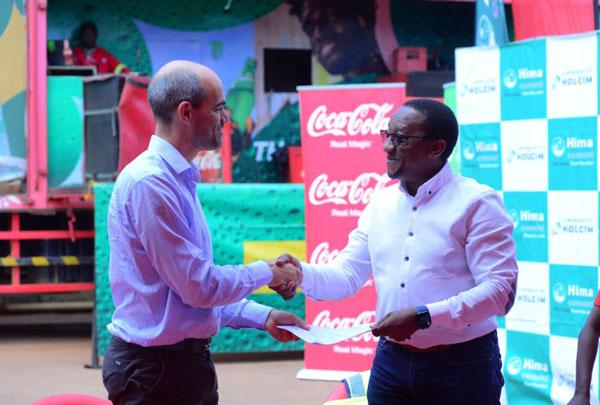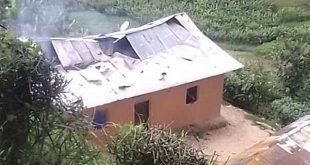
Kampala, Uganda | THE INDEPENDENT | A partnership between Coca-Cola Beverages Uganda (CCBU) and Hima Cement Limited will see plastic waste put to good use as an alternative fuel in cement production.
During a three-year partnership, CCBU will provide Hima Cement access to plastic waste from its operations for handling and disposal through Hima’s waste management business, Geocycle.
The partnership is designed to end the lifecycle of Polyethylene Terephthalate (PET) waste collected from the environment. CCBU will provide Hima Cement with waste from it’s recycling process to be used in their heating process in the cement kiln leaving no residue. The two companies will also collaborate in awareness creation for proper waste management through communications.
Kirunda Magoola, CCBU Public Affairs, Communications and Sustainability Director, said it is important that plastic waste is managed properly through a collaboration that educates Ugandans on the importance of plastic waste recycling and disposal. He said Geocycle offers safe and sustainable waste management solutions applying the internationally recognised technology of co-processing.
“At CCBA, we are leading the industry in making our value chain increasingly sustainable in the way that we manufacture our products, how we distribute them and how we sell them. We have the scale and reach to make a real difference, and we’re using our leadership position to drive change and help put our planet on a more sustainable path.”
“We can’t do it alone. We work with stakeholders, nonprofits, communities, governments and our industry toward a clean environment. We are working in our communities to educate people on why and how to recycle through consumer campaigns, on-package messaging and more to create a healthier environment for all,” Magoola said.
CCBU, a subsidiary of Coca-Cola Beverages Africa, established Plastic Recycling Industries (PRI), an initiative through which the company promotes environmental conservation and protection by supporting collection and recycling of plastics in Uganda.
Jean-Michel Pons, the Hima Cement Country CEO, said: “As part of our decarbonization and circular economy approach, we utilize materials at the end of their lifecycle as alternative fuels, such as industrial wastes like plastics and agricultural wastes like biomass, thus reducing the carbon intensity of our cement while offering a unique solution to waste challenges.”
“This is an existential threat that we must tackle as a unit. It cannot be the responsibility of a single person or organisation. Everybody must get involved,” he added, noting that Hima Cement will, among others, get involved in plastic waste awareness programmes, provide access to its trucks in transportation of waste as well as engage in networking opportunities with affiliate companies and organisations in the plastic recycling sector to support CCBU’s initiatives related to environmental restoration.
 The Independent Uganda: You get the Truth we Pay the Price
The Independent Uganda: You get the Truth we Pay the Price



